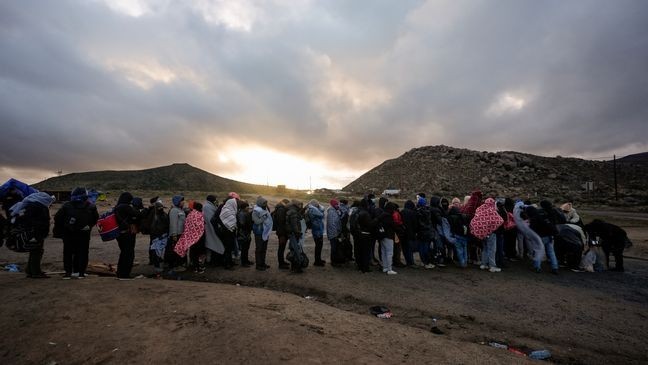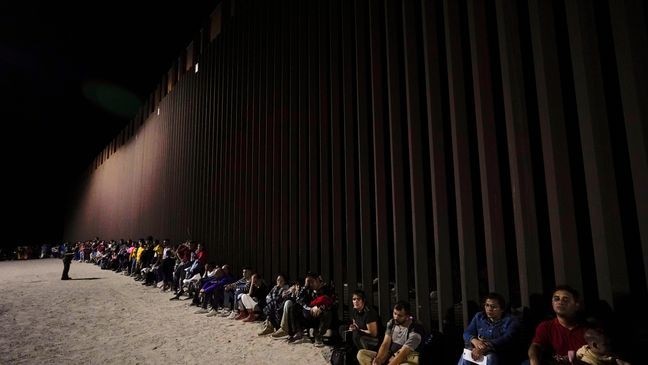As Trump's mass deportation plan takes shape, so too does the resistance
WASHINGTON (TNND) — President-elect Donald Trump has confirmed he plans to declare a national emergency as part of his mass deportation plan and will seek assistance from the Department of Defense.
In an interview with Fox Business on Tuesday, Tom Homan, the former acting director of U.S. Immigration & Customs Enforcement (ICE) explained. Homan was selected by Trump to serve as his "border czar."
”If we use DOD 116 they’ll be used to do non-enforcement duties such as transportation whether it's on ground or air, infrastructure building, intelligence. Things would take a badge and gun, an ICE officer that are doing these type of duties, takes them away from those duties, put them on the street.”
VOTE | Should states not get funding if they don't participate in Trump's deportation plan?
Stephen Miller, a chief architect of Trump’s immigration policy, has said military funds would be used to build more detention facilities as immigrants are processed and await deportation, with hints they will also target birthright citizenship - a right laid out in the Constitution. There has also been a push to cancel student visas for those who took part in anti-Israel or pro-Palestinian protests.
As those policies take shape, so does the resistance. Los Angeles, Chicago, and Boston are joining a growing list of sanctuary cities passing ordinances and vowing not to work with federal immigration authorities.
In an interview with Boston's WCVB, Mayor Michelle Wu, D-Boston, said, “What we can do is make sure that we are doing our part to protect our residents in every possible way, that we are not cooperating with those efforts that actually threaten the safety of everyone by causing widespread fear and having large scale economic impact."
Trump supporters argue the greater costs have been on American taxpayers.
“In the last four years, illegal immigration has cost taxpayers half a trillion dollars. It’s going to be cheaper to remove people than keep people in the country illegally," Former Acting Commissioner of U.S. Customs and Border Protection Mark Morgan said.
Still, some state and local leaders in areas with large agricultural and farm communities are warning the mass deportation could lead to far fewer workers, impacting everything from housing and construction costs to the cost and availability of food in stores and restaurants with the agricultural output revenue expected to fall between $30 and $60 billion.




